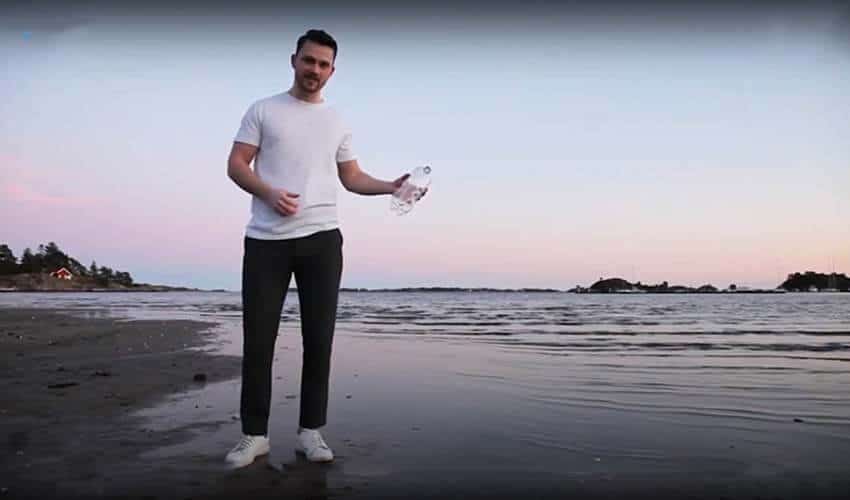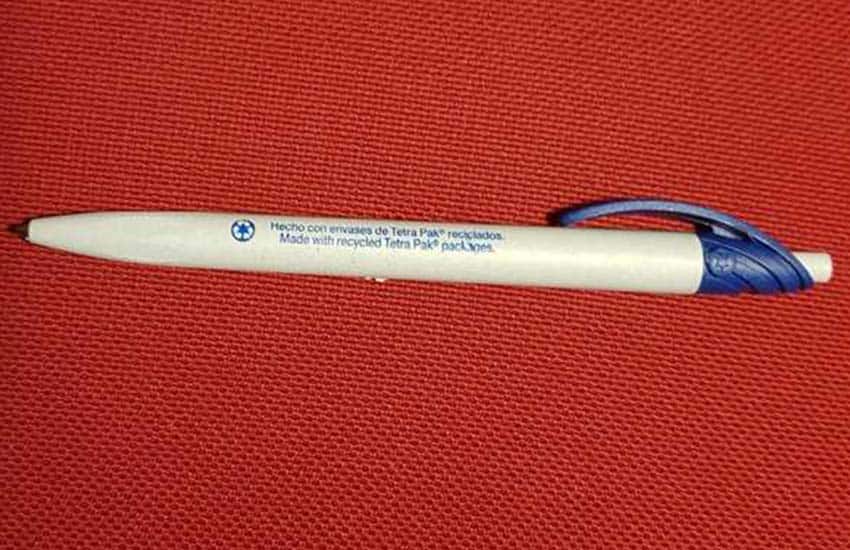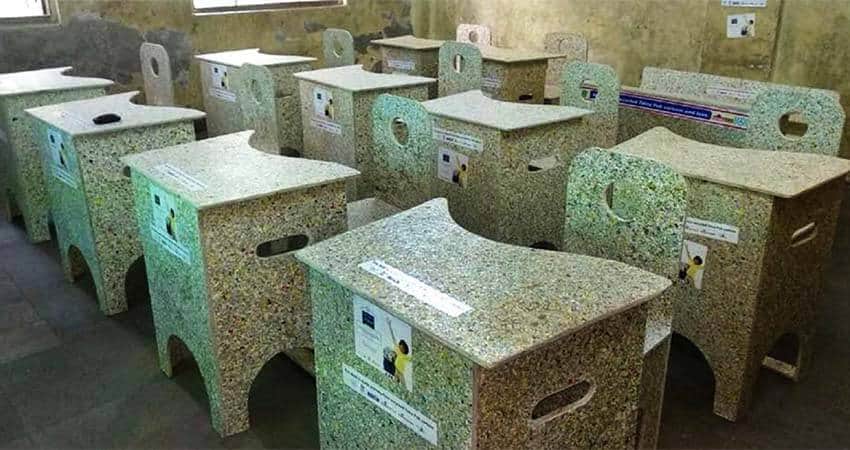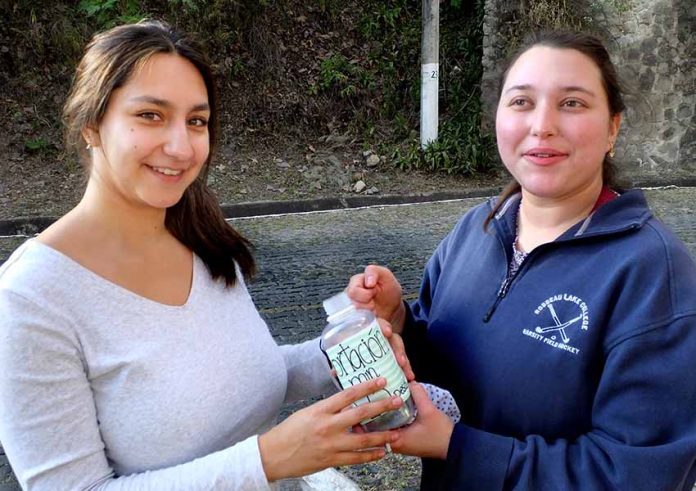I live in Pinar de la Venta, a rural community in the municipality of Zapopan, Jalisco, that’s perched on a mountaintop not far from Guadalajara, Jalisco. Not long ago, in our local WhatsApp chat, I began to see notices every two weeks, inviting people to collect and contribute their recyclables.
The posts came from two young women living in my neighborhood named Xela Lloyd and Xochil Vandroogenbroeck, both of them students. I asked them why they had decided to start this project instead of spending all day with their noses in a smartphone, like so many other young moderns.
“It all began,” Lloyd said, “when we would drive through these streets and see what sort of things people were throwing out to be picked up by the trash collectors.”
They both realized that most of what was out there was recyclable.
“We kept seeing people in the [WhatsApp] chat complain that we should be recycling here, but all they did was talk about it,” Vandroogenbroeck said. “They never took the initiative. Finally, we got tired of all that complaining, so we decided to go ahead and do something ourselves. That’s how it all started!”
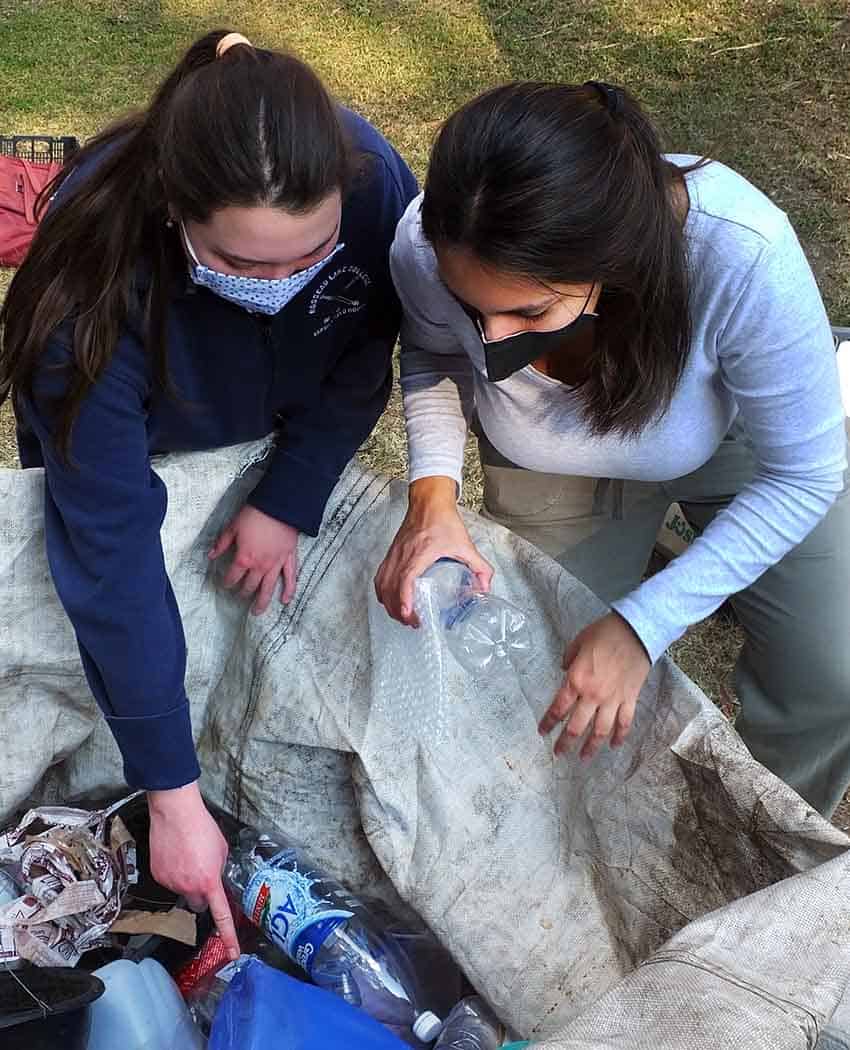
I asked them how they had arranged for somebody to come far from town to our mile-high community to pick things up twice a month.
“Bueno,” Lloyd said, “in our homes, we used to separate and accumulate our recyclable items like glass, paper and plastics, and then we would take everything to one of several pickup points in Guadalajara. So we called the people who were running that project and asked them if they wouldn’t mind including our community as one of those pickup points, because it is such a long drive from here into the city.”
The young women got the Jalisco project, which is these days called CreSer ConCiencia (Raise Awareness with Science) to agree on a time and place, and they now come by every 15 days.
Every other Sunday, Lloyd and Vandroogenbroeck put a reminder on the chat and go to meet the people bringing things to be recycled.
“Somebody always appears,” they told me, “and usually they have lots of questions about what’s recyclable and what’s not. Some of them have rather funny ideas about recycling. For example, somebody showed up with a shoe … not a pair, just one shoe! And one day, a group of people showed up with a sofa … but they were walking, carrying it!”
I went down to the meeting point to see for myself. At the appointed spot, there was a flatbed truck and two young men, Juan and Santiago Quezada. After I asked Juan how long he has been collecting materials for recycling he looked surprised at the question. “Since I was eight years old,” he replied.
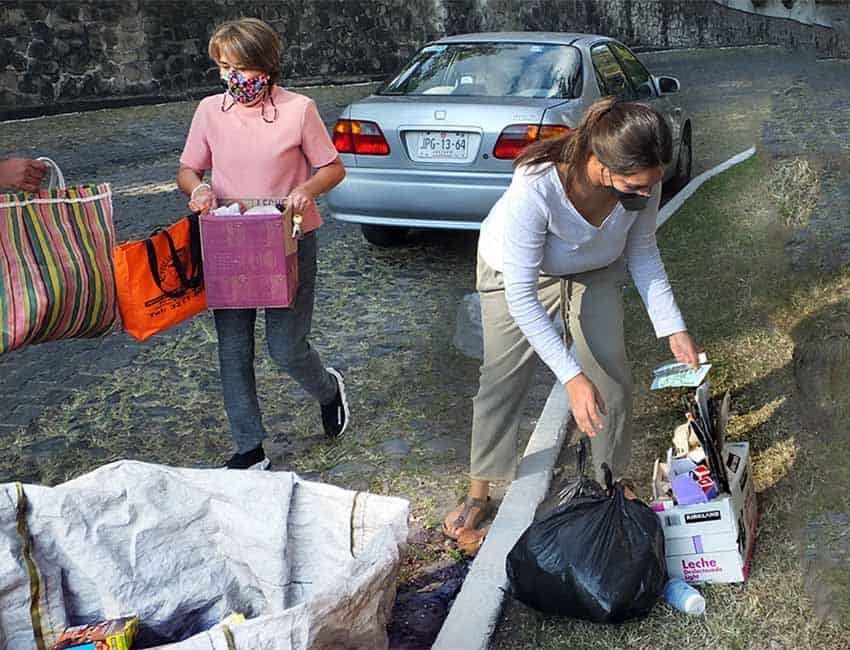
Because I had asked to meet her, the organizer of CreSer ConCiencia, Louisette Chacón, was also at the collection point. I asked her where her interest in recycling had been born.
“I have four children,” Chacón told me. “When they were in elementary school, I joined a reading group started by some of the mothers … and that’s how I first heard about ecology, recycling and … Greenpeace.”
At these meetings, Chacón would learn what Greenpeace was doing and then pass it on to the group and to the kids.
“After a while, I joined Greenpeace and ended up going on four trips with them on the Rainbow Warrior III and other boats. So, caring for our environment has always been important for me, and for some time I was thinking about a good project for me to work on, and I decided I need to focus on education, in particular educating kids.”
CreSer ConCiencia is aimed at everyone — children and adults.
“But at first, we are starting with schools. To get the ball rolling, we set up a system by which the general public could donate their recyclable trash, but my final goal is to hold workshops in schools,” Chacón said. “Due to COVID, we’re not collecting as much as we’d like, and we often have to take money out of our own pockets to keep things going, to pay salaries and gasoline and things like signs and publications.”
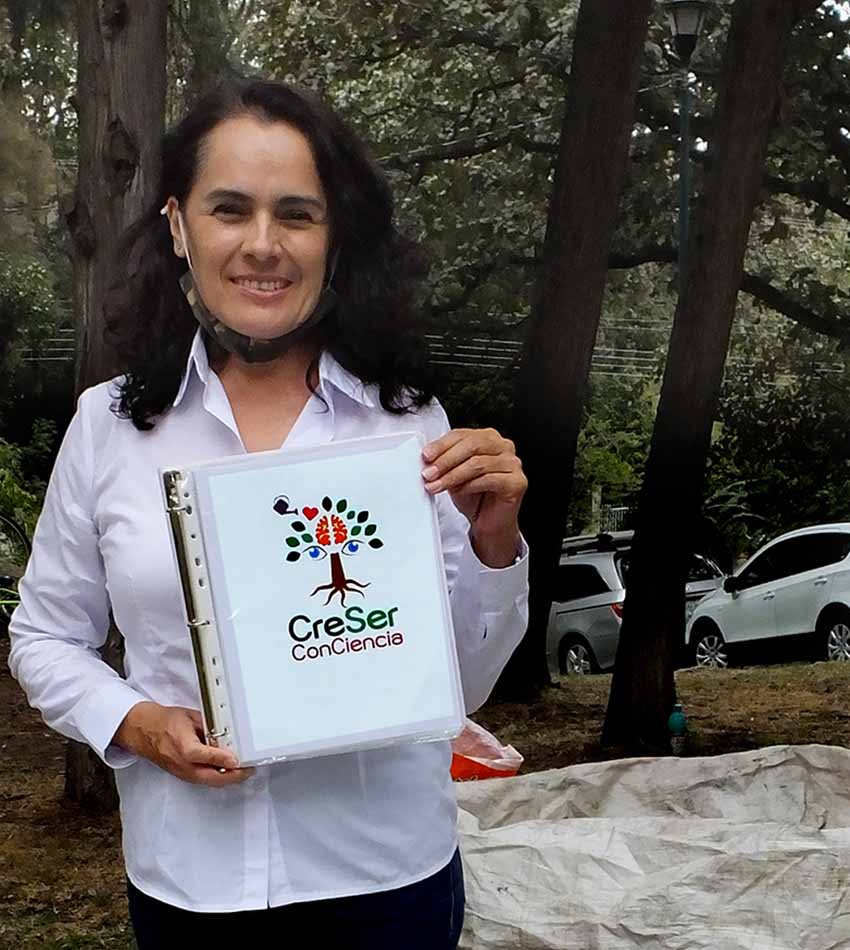
I asked her what some of the objects they collect look like once they have been recycled.
“Take these Tetra Pak juice and milk cartons,” she said. “Tetra Paks are 100% recyclable: they consist of 75% cardboard, 20% polyethylene and 5% aluminum. So all of these can be recycled. From old Tetra Paks, we get flooring and roofing material. You can even make houses out of this material!”
Chacón then showed me a plastic bottle full of cigarette butts.
“We are also ambassadors of Eco Filter México,” she said. “This is a company right here in Guadalajara that is using a fungus-based biotechnological process that they patented, that degrades 25% and detoxifies 100% of cigarette butts. Colillas, as we call them in Spanish, contain very toxic residues, so when they are tossed into water or thrown on the ground, they contaminate the environment.
“Just one butt can contain up to 200 toxic substances, some of them carcinogens … and would you believe it? They take 15 years to decompose. So we encourage people to put cigarette butts into a plastic bottle which they can give to us once it’s full. We will then pass them on to Eco Filter.”
Chacón explained that Eco Filter’s plant is located behind the Guadalajara airport. They break up the filters and mix them with this fungus they discovered in Michoacán.
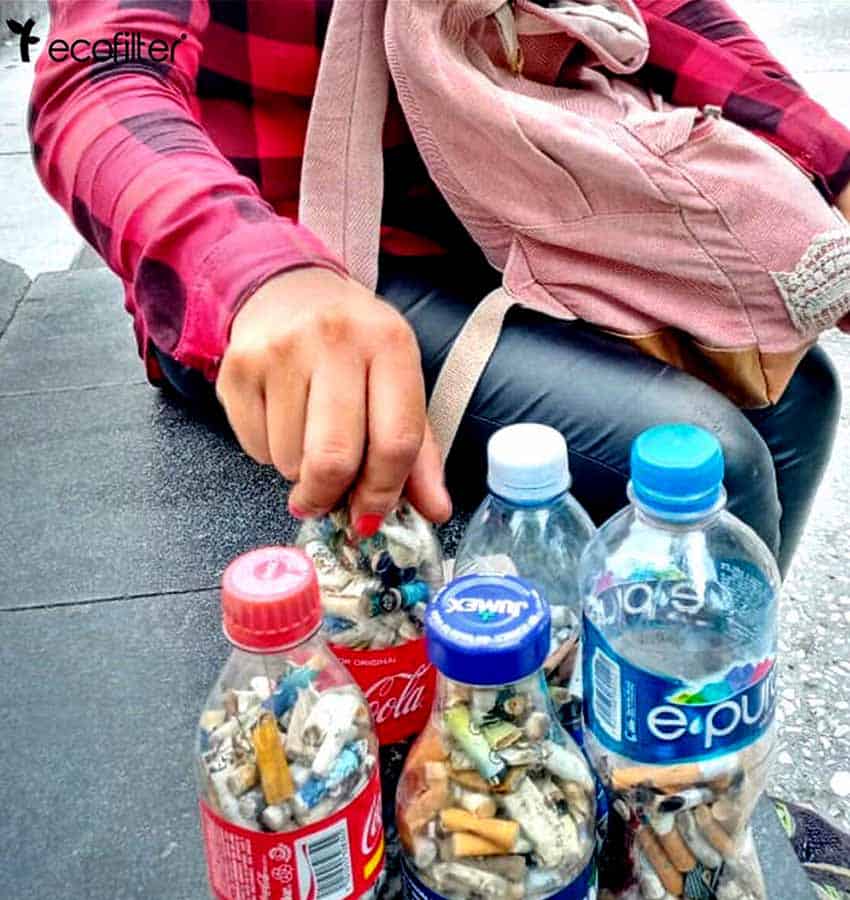
After 20 days or so, the fungus decontaminates the filter. Then the material is dried and powdered, and out of it, they make things like paper and flowerpots. Last year, they processed more than six million colillas!”
Chacón also told me that recyclers are doing some amazing things with bottles made of PET, a polymer in the polyester family. Let me mention just one example.
Oceanness is a company in Oslo, Norway, that collects plastic bottles from ocean coastlines and turns them into T-shirts. In a video clip on Oceanness’ website, company CEO Gaute Hellerslia explains that it takes seven plastic bottles to create one shirt.
Those bottles, he says, are “clinically washed, Monica-from-Friends-style,” then shredded to flakes, which are melted into tiny pellets that in turn are extruded and spun into soft yarn and finally woven into cloth.
Then Gaute casually adds, “I have a pretty disturbing fact for you: 60% of all clothing today is actually plastic made from oil. The fashion business is the second most polluting industry in the world. Check the label on the clothes you are wearing. If it says they’re made of polyester, your clothes come from oil.”
The clip ends with a small notice: “Since you started watching this video, 734,000 plastic bottles have been dumped in our oceans.”
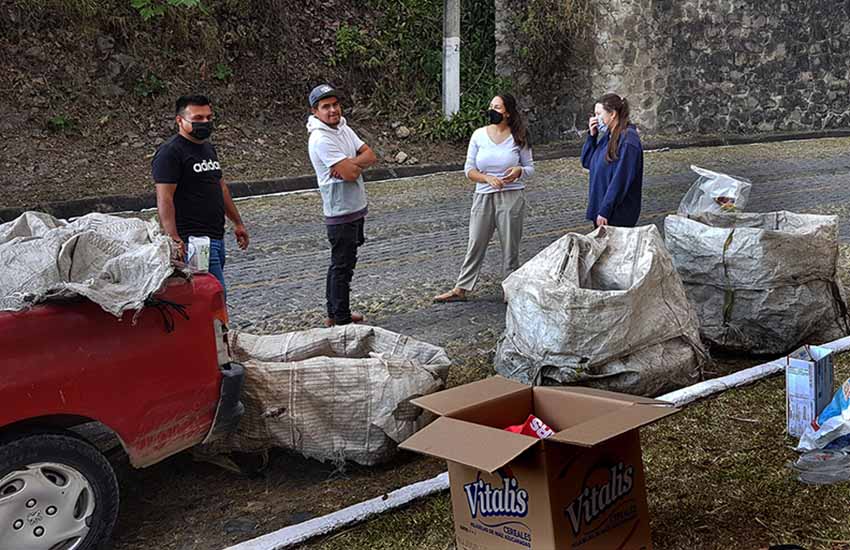
I thank young people like Lloyd and Vandroogenbroeck, not only for calling my attention to problems I should be thinking more about but also for actually taking a hand in doing something about them.
The writer has lived near Guadalajara, Jalisco, since 1985. His most recent book is Outdoors in Western Mexico, Volume Three. More of his writing can be found on his blog.
